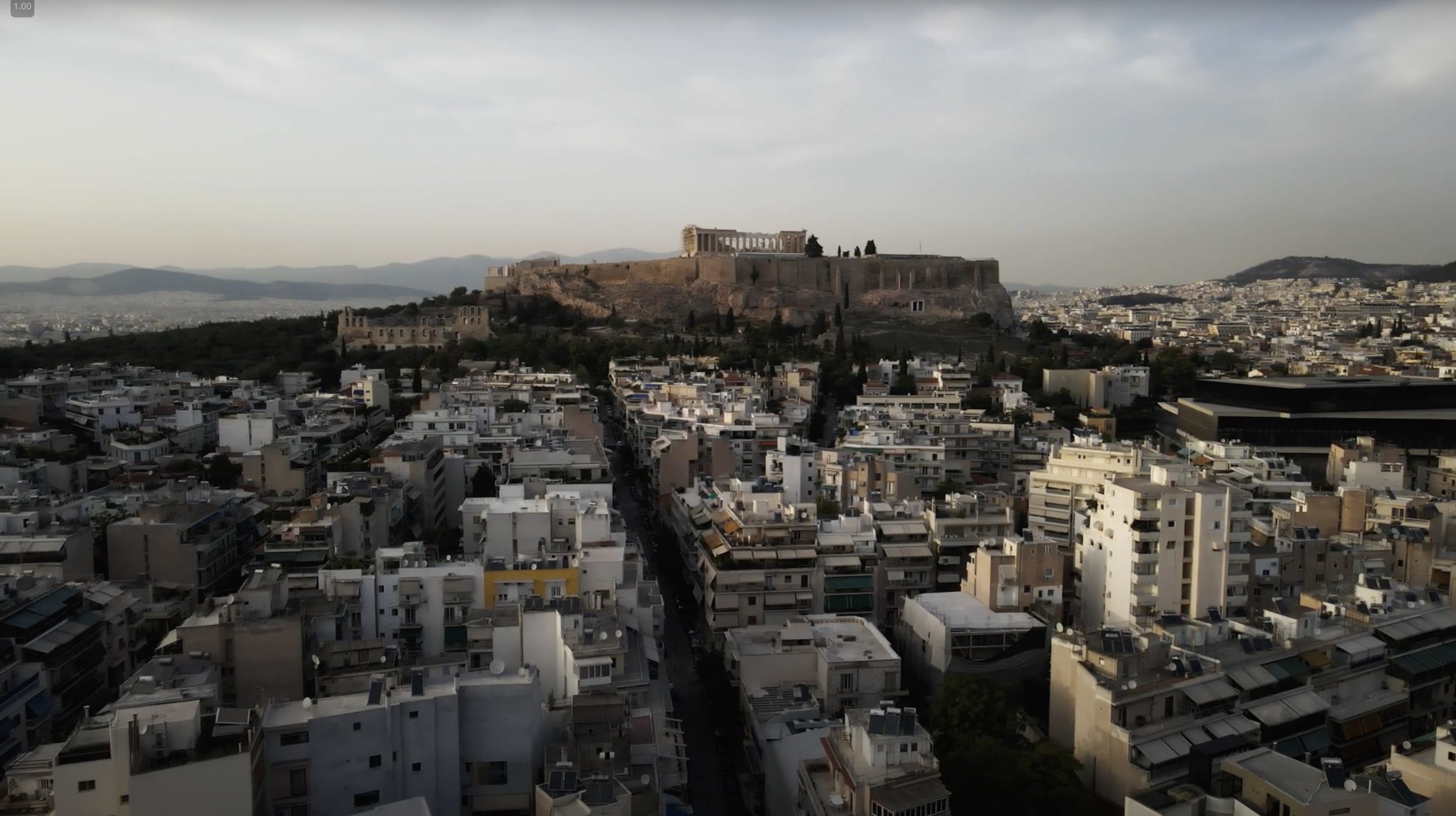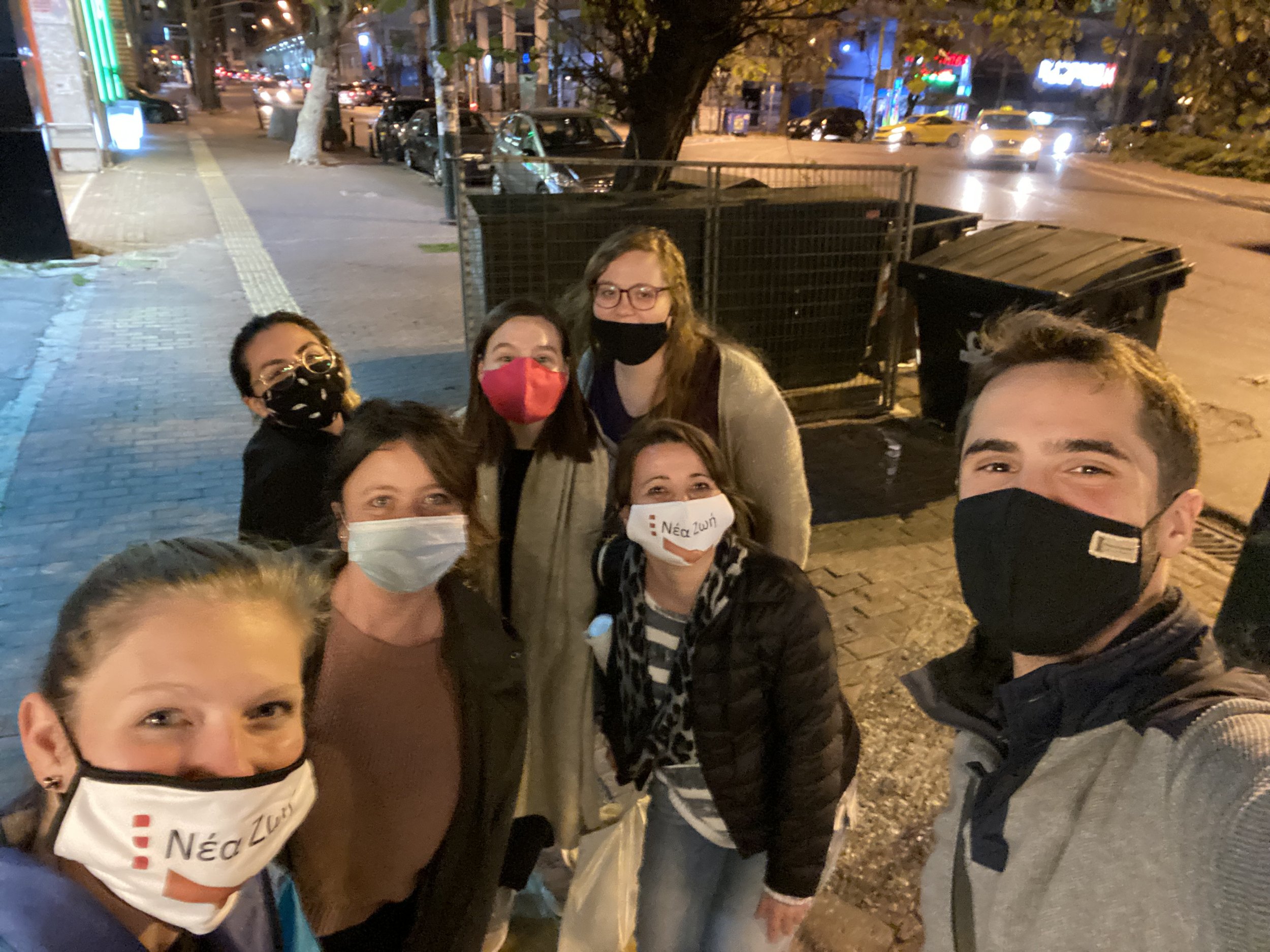A Collaborative Approach to Anti-Trafficking
Fighting Sexual Exploitation in Athens, Greece
If you walk along the streets of Athens, Greece, you will immediately notice ancient architecture combined with newly built structures; Greece has been at the crossroads of culture and history for thousands of years. What is more hidden from view, however, is the longstanding problem of sex trafficking and sexual exploitation of women - existing both in the public and private sectors since before the first century.
Sex trafficking is complex; not only does it have a long history in Athens, but there is a legal framework for prostitution in Greece, blurring the lines between choice and coercion. When faced with such a longstanding problem, how does true, lasting change occur? How can such a complicated issue be addressed? And in the midst of the deep exploitation that comes with modern-day slavery, how does one pursue justice and liberation?
Andrew Larson, Catalyst for One Collective in Athens Eleftheria (Greek for “freedom”), is one of the many people working to answer these questions. He shares, “Athens Eleftheria is One Collective’s response to the enormity of human trafficking and sexual exploitation taking place within the borders of Greece.”
Greece is considered by many to be the ‘backdoor’ to Europe, with countless people traveling to and through the country to get to other parts of the world. With this reality, Andrew has observed that “where there are high rates of human migration, there is unfortunately always human exploitation.” In Greece, this exploitation predominantly takes the form of women in the sex industry.
While studying abroad in Athens during college, Andrew got connected to, and volunteered his time working with, Nea Zoi - a nonprofit started by One Collective in the 1990’s that has since become Greek-led. His experience in Greece opened his eyes to the complexity of sex trafficking. After college, he moved to Athens with One Collective to work in a full-time partnership with Nea Zoi’s anti-sex trafficking efforts.
With such a longstanding and complex problem, Nea Zoi could not take on the issue alone. There needed to be a unified, collaborative effort across anti-trafficking organizations in Athens. “It felt like each organization in the city was operating independently of one another - they were aware of what each other was doing, but there wasn’t very much collaboration.” With a desire to be more effective in the work, Andrew co-founded a community of practitioners addressing sex trafficking called the Athens Freedom Network.
The Athens Freedom Network’s purpose is to bring together faith-based anti-trafficking organizations in the city, in part through creating intentional space for people and organizations to leverage resources and share information, as well as discuss effective responses to sex trafficking on all levels. Additionally, the network offers an encouraging space in a field that is highly emotionally taxing - and can easily lead to burnout.
VIDEO: Hear and See more About this Work
Says Andrew, “Anti-trafficking work is exhausting, so those of us working on the ground need each other. This is a really complicated issue, and it requires a multifaceted response - we’re stronger and more effective when we work together. Every participant in the network shows up and offers their own perspective, resources, and encouragement. I couldn’t be more proud of my colleagues in this space.”
“Anti-trafficking work is exhausting. This is a really complicated issue, and it requires a multifaceted response - we’re stronger and more effective when we work together.”
In addition to developing a community of peers in anti-trafficking work, Andrew and the Athens Freedom Network have also developed pathways of collaboration with the Greek government to address sexual exploitation - a particularly notable achievement considering the government’s wariness towards collaborating with faith-based nonprofits. “We’ve cultivated and fostered great professional working relationships with the Greek government.” Through this relationship, the network has been approached by journalists and reporters who want to raise awareness about anti-sex trafficking - helping to bring the topic out of the shadows and into view of more people who can be part of addressing the problem.
Facilitating partnerships and strengthening collaboration is not all the team with Nea Zoi does; however, they also work directly with women caught in the sex industry, spending time in the brothels to develop trust and relationships. The exact work is sensitive - Andrew notes that “we can’t let traffickers know the role we may or may not be playing in women leaving this industry” - but the people working daily towards liberation and healing are inspiring.
Two such people are Larisa and Adriana, from Moldova and Romania, respectively. Although their stories are different, both women moved to Greece to fight sex trafficking, speak multiple languages, and spend time daily in the brothels to build trust and forge relationships with women in trafficking, creating opportunities for these women to reach out and ask for help.
“It is amazing to see how God has uniquely gifted Larisa and Adriana to connect - especially because the women in the brothels here come from all over the world. Larisa and Adriana are working in ways that myself or others from the United States would never be able to, and it’s been such a privilege to learn from them and work alongside them,” Andrew shares.
Although the struggle against such a pervasive issue is ongoing, hope remains for lasting change through the efforts of people like Andrew, Larissa, and Adrianna, through the ways of Jesus - and through people like you, who play an integral role in fostering this hope with your involvement and investment in One Collective.
“Looking forward, I’m excited to see increased strength in creative, multifaceted, diversified responses to the issue of sex trafficking. It can oftentimes feel like justice and liberation are just beyond reach - but I see God in the responses of the women we encounter, especially when they say they feel seen. God is a God who is present with the marginalized, and it is a privilege to practice that, even in a small way.”
““God is a God who is present with the marginalized, and it is a privilege to practice that, even in a small way.””







